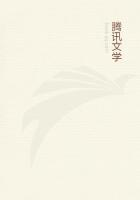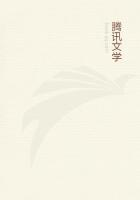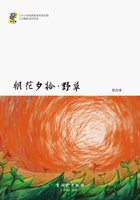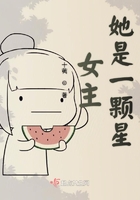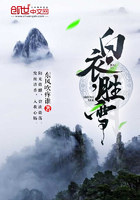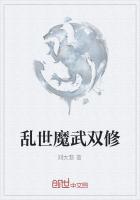When we are offered a "woman's" paper, page, or column, we find it filled with matter supposed to appeal to women as a *** or class; the writer mainly dwelling upon the Kaiser's four K's--Kuchen, Kinder, Kirche, Kleider. They iterate and reiterate endlessly the discussion of cookery, old and new; of the care of children; of the overwhelming subject of clothing; and of moral instruction. All this is recognized as "feminine" literature, and it must have some appeal else the women would not read it. What parallel have we in "masculine" literature?
"None!" is the proud reply. "Men are people! Women, being 'the ***,' have their limited feminine interests, their feminine point of view, which must be provided for. Men, however, are not restricted--to them belongs the world's literature!"
Yes, it has belonged to them--ever since there was any. They have written it and they have read it. It is only lately that women, generally speaking, have been taught to read; still more lately that they have been allowed to write. It is but a little while since Harriet Martineau concealed her writing beneath her sewing when visitors came in--writing was "masculine"--sewing "feminine."
We have not, it Is true, confined men to a narrowly construed "masculine sphere," and composed a special literature suited to it. Their effect on literature has been far wider than that, monopolizing this form of art with special favor. It was suited above all others to the dominant impulse of self-expression; and being, as we have seen essentially and continually "the ***;" they have impressed that *** upon this art overwhelmingly; they have given the world a masculized literature.
It is hard for us to realize this. We can readily see, that if women had always written the books, no men either writing or reading them, that would have surely "feminized" our literature; but we have not in our minds the concept, much less the word, for an overmasculized influence.
Men having been accepted as humanity, women but a side-issue; (most literally if we accept the Hebrew legend!), whatever men did or said was human--and not to be criticized. In no department of life is it easier to contravert this old belief; to show how the male *** as such differs from the human type; and how this maleness has monopolized and disfigured a great social function.
Human life is a very large affair; and literature is its chief art. We live, humanly, only through our power of communication. Speech gives us this power laterally, as it were, in immediate personal contact. For permanent use speech becomes oral tradition--a poor dependence.
Literature gives not only an infinite multiplication to the lateral spread of communion but adds the vertical reach. Through it we know the past, govern the present, and influence the future. In its servicable common forms it is the indispensable daily servant of our lives; in its nobler flights as a great art no means of human inter-change goes so far.
In these brief limits we can touch but lightly on some phases of so great a subject; and will rest the case mainly on the effect of an exclusively masculine handling of the two fields of history and fiction.
In poetry and the drama the same influence is easily traced, but in the first two it is so baldly prominent as to defy objection.
History is, or should be, the story of our racial life. What have men made it? The story of warfare and conquest. Begin at the very beginning with the carven stones of Egypt, the clay records of Chaldea, what do we find of history?
"I Pharaoh, King of Kings! Lord of Lords! (etc. etc.), "went down into the miserable land of Kush, and slew of the inhabitants thereof an hundred and forty and two thousands!" That, or something like it, is the kind of record early history gives us.
The story of Conquering Kings, who and how many they killed and enslaved; the grovelling adulation of the abased; the unlimited jubilation of the victor; from the primitive state of most ancient kings, and the Roman triumphs where queens walked in chains, down to our omni present soldier's monuments: the story of war and conquest--war and conquest--over and over; with such boasting and triumph, such cock-crow and flapping of wings as show most unmistakably the natural source.
All this will strike the reader at first as biased and unfair. "That was the way people lived in those days!" says the reader.
No--it was not the way women lived.
"O, women!" says the reader, "Of course not! Women are different."
Yea, women are different; and _men are different!_ Both of them, as ***es, differ from the human norm, which is social life and all social development. Society was slowly growing in all those black blind years.
The arts, the sciences, the trades and crafts and professions, religion, philosophy, government, law, commerce, agriculture--all the human processes were going on as well as they were able, between wars.
The male naturally fights, and naturally crows, triumphs over his rival and takes the prize--therefore was he made male. Maleness means war.
Not only so; but being male, he cares only for male interests. Men, being the sole arbiters of what should be done and said and written, have given us not only a social growth scarred and thwarted from the beginning by continual destruction; but a history which is one unbroken record of courage and red cruelty, of triumph and black shame.
As to what went on that was of real consequence, the great slow steps of the working world, the discoveries and inventions, the real progress of humanity--that was not worth recording, from a masculine point of view.
Within this last century, "the woman's century," the century of the great awakening, the rising demand for *******, political, economic, and domestic, we are beginning to write real history, human history, and not merely masculine history. But that great branch of literature--Hebrew, Greek, Roman, and all down later times, shows beyond all question, the influence of our androcentric culture.

